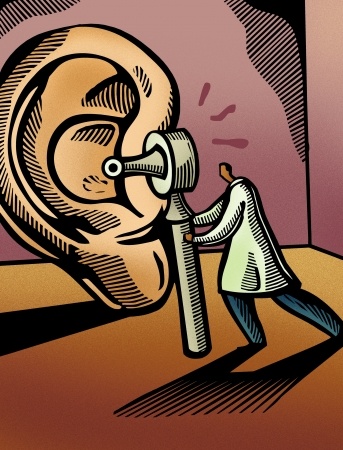
Suicide Hotline Manager
CantSay, US
Female, 0
I supervise and train telephone operators for a suicide hotline. In addition to answering phones myself, I am also available when questions about protocol come up or if a phone operator is having trouble dealing with the emotions being expressed by a caller. Like many non-profits, we are now in danger of being shut down because of budget cuts.
Some hotlines are twenty-four hours, but with budget cuts affecting all areas of mental health, there are fewer and fewer of them. Calls really vary throughout the day, but I would say that the morning seems to be a busy time from what I have observed and heard. When people wake up and realize that they are still depressed, still lonely, still stuck where they were yesterday, they often need some help getting the day started.
My take on suicide in general is that there is almost always a strong chance that life will improve. I've spoken to a number of people at the hotline who called to thank us because having a lifeline stopped them from committing suicide, which they now realize would have been the wrong choice for them. I've also spoken to those left behind by suicide and heard them describe the pain their loved one's actions have caused them. Suicide obliterates any chance to experience a better future and leaves a trail of damage in its wake. Ultimately, however, suicide is an individual right and along with that right should come the option of ending one's life in a painless manner. With something like an chronically painful, untreatable disease I particularly understand the decision to end that suffering and I see why a doctor should be allowed to assist the individual. I do wonder, though, if we openly acknowledge suicide as a culturally acceptable option whether it will potentially encourage those who might have held on longer to end their lives instead. It's a complex issue obviously and one that I have great ambivalence about despite my "insider's position".
It’s impossible not to become emotionally invested in some callers, but it only makes you want to stay longer. When you hear the sadness in someone’s voice, it makes it hard not to give more and more. You start to see how it affects your outside life, the patience you find for people you would normally ignore, the sympathy you feel for the tragedies you would have previously done your best to overlook. Over time you learn to deal with the emotions that come from listening to sadness all day long. You compartmentalize it so that you can go home and still have a good night and so that you don’t bring your emotions onto a call. The call should always be about what the caller is going through, not what you’re dealing with.
We have local and state funding as well as private donors. Honestly, I don't know much about that part of our organization.
Audiologist
 Are earbuds dangerous for my ears?
Are earbuds dangerous for my ears?
School Bus Driver
 Do the kids treat you with the same amount of respect as other authority figures at school?
Do the kids treat you with the same amount of respect as other authority figures at school?
Fashion Model
 Do you feel objectified when you're standing around in skimpy outfits?
Do you feel objectified when you're standing around in skimpy outfits?
There are a fair number of people who realize early on that this isn't the right sort of work for them. On the other hand, there are people who stay with it for decades. Like many jobs it's about the right fit, but because of the seriousness of the work you quickly realize that you're not the only one who will be affected if you are not performing at your best.
I think a number of factors go into play. For one thing, suicide rates are higher in areas of economic and political crisis. For example, Greece used to have the lowest suicide rate in Europe, but since the financial collapse, it has had one of the highest. Probably another consideration is the availability of mental health care and crisis intervention, which is pretty weak in most countries. Additionally, in more interdependent cultures, it is hard to acknowledge personal needs when the normative value is on preserving balance within the social circle.
We do get calls like that and they brighten up everyone's day. We really care about our callers and, aside from feeling good because of positive feedback, we are genuinely happy for them when life begins to improve.
-OR-
 Login with Facebook
Login with Facebook (max 20 characters - letters, numbers, and underscores only. Note that your username is private, and you have the option to choose an alias when asking questions or hosting a Q&A.)
(A valid e-mail address is required. Your e-mail will not be shared with anyone.)
(min 5 characters)
By checking this box, you acknowledge that you have read and agree to Jobstr.com’s Terms and Privacy Policy.
-OR-
 Register with Facebook
Register with Facebook(Don't worry: you'll be able to choose an alias when asking questions or hosting a Q&A.)